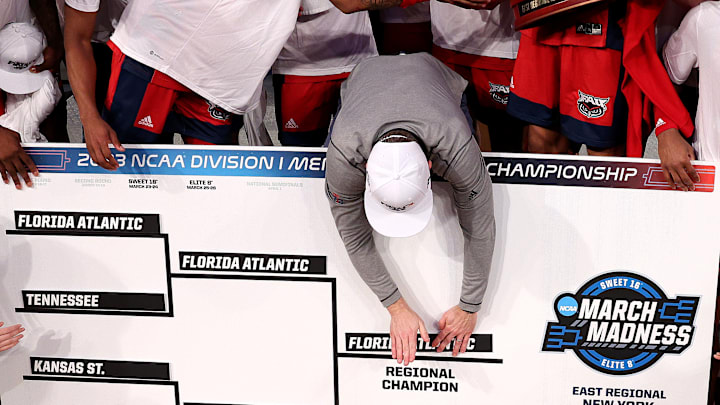This discussion of expansion is nothing new to the NCAA and March Madness fans, it's been an idea that has been talked about in the sports world for the last few years but more so now. The idea to expand the tournament field began taking off earlier this year back in January, when the transformation committee was recommending that twenty-five percent of the team in the over two hundred participating schools should be allowed to qualify and play in championship events.
The current March Madness bracket hosts sixty-eight teams but talk has been circulating on whether this should be expanded to ninety-six teams. Now we all know that this talk took place way before a huge wave of conference realignments deleted the Pac-12 and sent multiple West Coast teams to larger conferences, such as the Big Ten, and the ACC. Now with the conference realignment coming into play, teams with sixteen and eighteen-team conferences pose a huge scheduling issue for a ton of athletic departments as well as the NCAA Selection Committee,
We all know the major bracketing systems such as the RPI, NET, and KenPom no doubt favor these much larger conferences over the mid-majors and this is something that probably won’t change anytime soon.
Fox Sports announced it is in the process of creating a postseason college basketball tournament that would take place after the NCAA Tournament’s Elite Eight round. The field would consist of 16 teams from the Big East, Big Ten, and Big 12. And because the three leagues have TV contracts with Fox Sports, teams that didn’t make the NCAA Tournament will be forced to play in the alternative tournament.
NCAA commissioner Charlie Baker who was newly appointed pushed back on the idea when it was first brought up last season, but Fox Sports has made headway on establishing a new postseason that would certainly diminish the NIT, CBI, and other tournaments.
The NCAA has a lot to consider before its next meeting in October. Many have pushed back the idea of expanding in the past, but for the sake of the most iconic and unique tournament in U.S. sports, it could be the NCAA’s only answer to keeping it all together.
